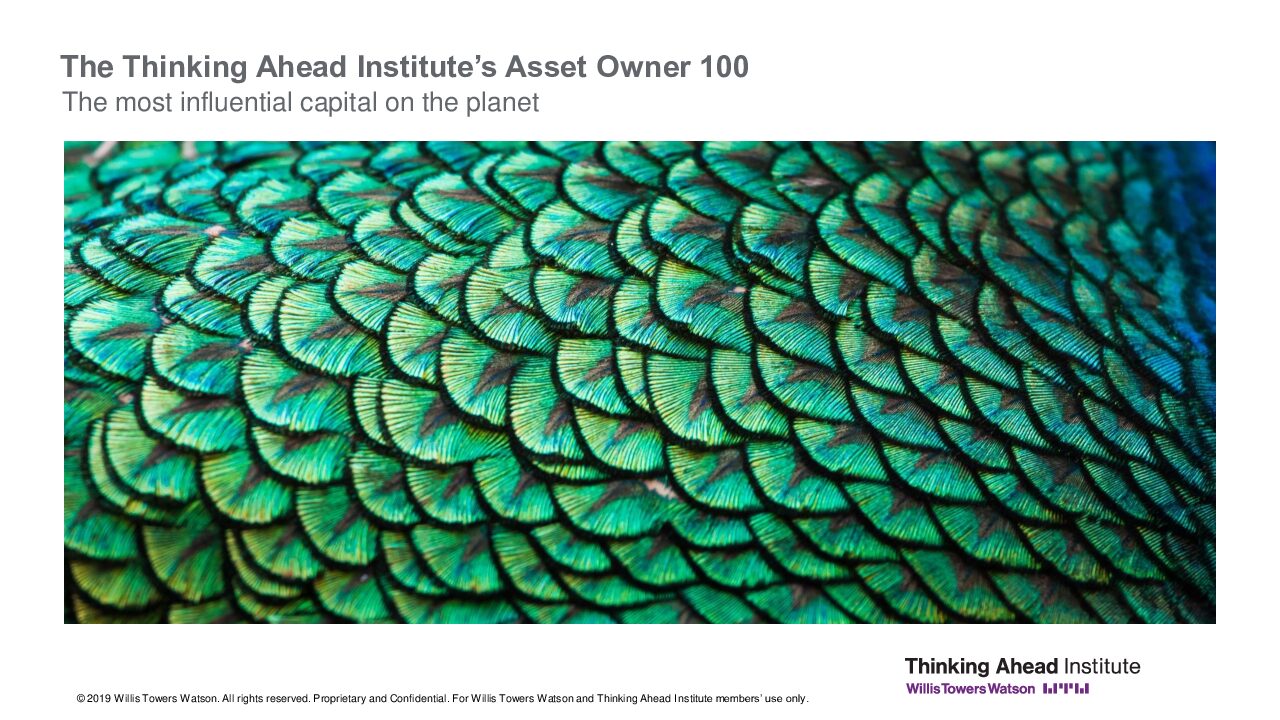Summary
- Discretionary assets under management of the world’s 100 largest asset owners totalled US$18.69trillion
- The top 20 funds total US$10.5 trillion and represent 56% of the assets in the ranking
- APAC is the largest region in terms of AUM, accounting for 36% of all assets in the ranking
- EMEA and North America’s assets represented 34% and 30% respectively
The most influential capital on the planet
- The Asset Owner 100 – the largest 100 asset owners in the world – represent approximately US$19 trillion out of an estimated US$55 trillion in total.
- These institutional investors warrant particular attention because they have the discretion to place their capital into any country and any asset class that suits them. It follows that their policies and their decisions regarding asset allocation and stewardship shape capital markets and are a key element in the smooth functioning of the global economy.
- These asset pools are the most influential capital on the planet.
- These asset owners are spread around the world, and represent a range of types of organisation:
- The emergence of OCIOs and master trusts as a new category of asset owner reflects the significant increase in the delegation by asset owners of key decisions to external organisations – it is the extent of discretion that is delegated that differentiates these platforms from traditional asset management.
- The most influential members of this group of 100 asset owners are those who qualify as universal owners. These are organisations that are very large and long-term in horizon that also have a leadership mind-set. Universal ownership acknowledges the influence that investment decisions have beyond the portfolio itself onto wider stakeholders and systemic considerations, and the responsibility and opportunity that comes with that.



What is an asset owner?
In our view, an asset owner has five qualifying characteristics:
- Works directly for a defined group of beneficiaries/savers/investors as the manager of their assets in a fiduciary capacity (upholding loyalty and prudence) under delegated responsibility
- Works with a sponsoring entity, usually a government, part of government, a company or a not-for-profit
- Works within explicit law and possesses an implicit societal license to operate because of its societal trust and legitimacy
- Delivers mission-specific outcomes to beneficiaries and stakeholders in the form of various payments or benefits into the future
- Employs a business model that combines a governance budget (essentially resources and processes) and a risk budget (reflecting the mix of financial assets that delivers on the mission).
Pension funds are the single biggest group of asset owners meeting all the qualifying criteria above. Sovereign funds, OCIOs, endowments and foundations also fully qualify. Other institutions, such as insurance companies and mutual funds only partly qualify and so have been excluded from this study.

